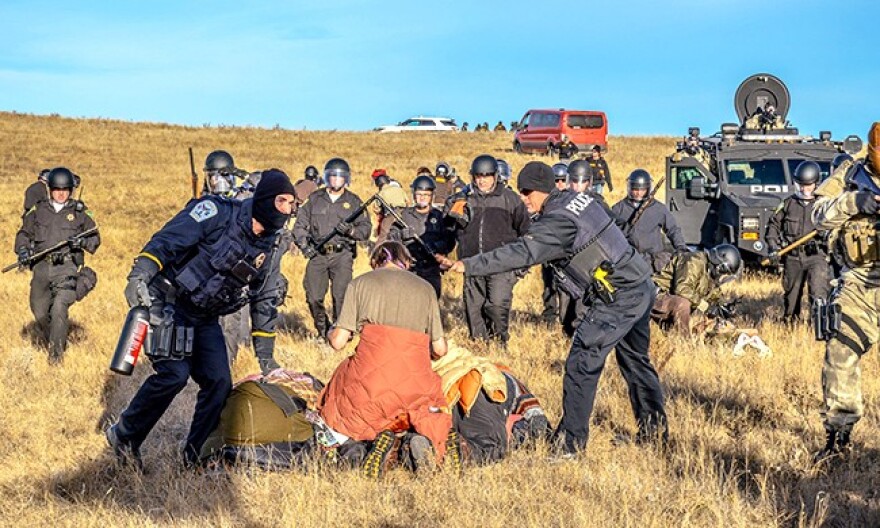Earlier this year, I was in southeast Texas, taking pictures of an oil refinery for a report about air pollution and the harm it causes to lower-income communities like Port Arthur, Texas.
As I stood on a public roadway, a private security guard pulled up behind my car and demanded to know who I was and what I was doing. I showed him my driver’s license and patiently explained the environmental journalism project I was researching. He reported me to the FBI as a potential terrorist.
My wife was startled when an FBI agent showed up at our house in Baltimore to investigate. I provided the agent with a detailed, written description of the report about air pollution I was working on. That seemed to satisfy the FBI, although it sent a chill down my spine.
I told my story to Alleen Brown, a reporter with The Intercept who has been investigating the increasing coordination between oil and gas companies, their private security firms, law enforcement – and efforts to smear and intimidate environmentalists.
“Yeah, actually that story doesn’t surprise me at all,” Brown said.
She published a report earlier this year that used internal documents to reveal an energy company’s employment of a military contracting firm called TigerSwan, which is experienced with fighting terrorist groups in the Middle East. The North Carolina-based TigerSwan was hired to spy on and disrupt U.S. environmental groups and Native Americans protesting the construction of the Dakota Access oil Pipeline in North Dakota.
Although the protesters were, in fact, peaceful and nonviolent, the internal documents show that the security firm falsely described the clean water activists to law enforcement as terrorists, Brown said.
“The document referred at times to ‘eco-terrorism,’” said Brown. “It compared the water protectors to jihadist fighters, to terrorists, and essentially framed these people as a national security threat.”
One of the groups involved in the Dakota pipeline protest was Greenpeace. In August, one of President Trump’s private attorneys – Michael J. Bowe– filed the second of two lawsuits against Greenpeace, claiming that environmental activism is a criminal enterprise.
The lawsuits, filed on behalf of Energy Transfer Partners and a Canadian logging company, Resolute Forest Products, were unusual in that they used a federal law normally used to fight the mafia: the RICO Act, which stands for Racketeer Influenced Corrupt Organizations. The lawsuits claimed that Greenpeace wasn’t really fighting for the environment – but was a “global fraud” devoted to tricking people to donate millions of dollars.
A federal judge dismissed one of the lawsuits, from the logging company, on Monday – but the other lawsuit continues.
Attorney Michael Bowe did not respond to a request for an interview. But Greenpeace’s lawyer, Tom Wetterer, said that even the failed lawsuit serves as a warning shot to environmental groups.
“The fossil fuel industry has really rallied together and – as you know, with this administration, there are a lot of connections there,” Wetterer said. “It really does seem like these forces are waging war – and it’s not just against Greenpeace, but it’s against advocacy work. And it really is to advance the agenda of continuing to drill and extract.”
Carroll Muffett is the president of the nonprofit Center for International Environmental Law.
“I think it is absolutely escalating,” Muffett said. “I mean, we had Trump as a presidential candidate actively urging violence against protesters in his own audience. And I think we’ve seen clear signs from this administration that they strongly favor the interests of industry and the police over the rights to protest, the right to speak out, by (nonprofit organizations) and by average citizens.”
The oil and gas companies often argue that their interest is the national interest. But there is also a competing interest: the first Amendment to the Constitution.




